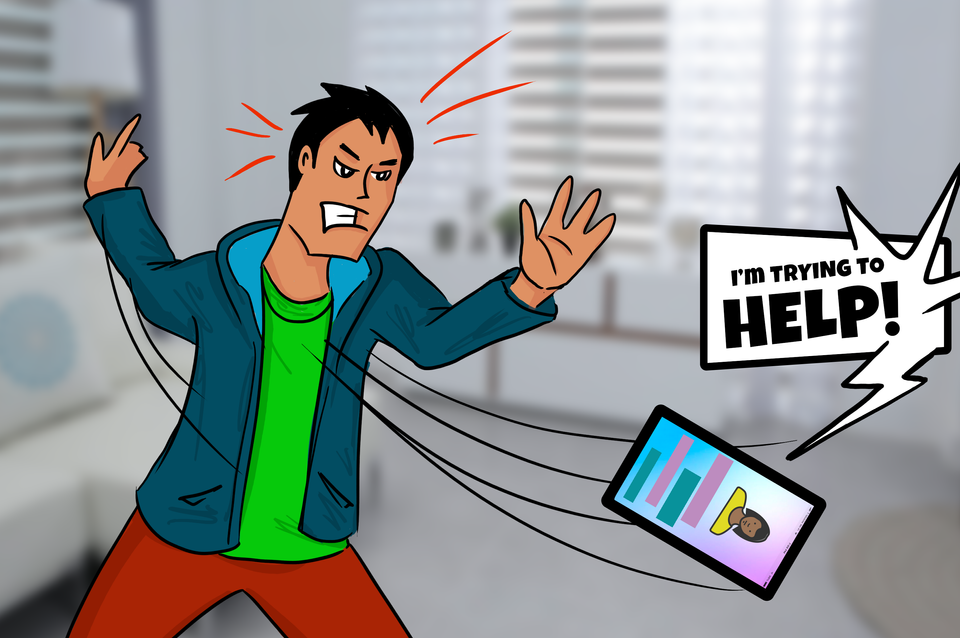How to talk to tech support about malware (and other hacks)

Who among us has never lost his composure when talking to a technical-support representative on the phone? In times of stress, it can be extremely difficult to control one’s anxiety and temper. Yet even when we feel like our world is crashing down—even when we discover that we’ve exposed our bank log-in credentials through a phishing attack, and we’re trying desperately to find someone who can help before our funds are drained—we need to keep a lid on our emotions, respecting the person who’s on the other end of the line.
Maintaining one’s composure while in a stressful situation isn’t easy; it requires the right frame of mind. These 10 simple meditations have helped me get into that zone with support representatives, such that I’ve been able to more effectively communicate and efficiently receive the help I’ve needed. So next time you dial an 800 number during a time of crisis, keep these thoughts in mind.
1. I have time
Technical calls are rarely completed as quickly as we would like. The act of talking to a customer rep—giving information, getting information, clarifying, and repeating—is a dance. And sometimes, it’s an aggravatingly slow dance. Keep in mind that it is one the rep would also like to end quickly, as most reps’ success is measured on the number of calls per hour they resolve.
2. The phone tree does not hate me
Before you talk to a support rep, you will likely have to navigate a phone maze, replying to robotic prompts with button presses or specific words. Hacks can be highly personal attacks, and communicating with a robot gatekeeper is rarely a reassuring experience. Attempt to remain calm. Work with the system, not against it. This will make the trial of the phone tree pass more quickly.
3. I am open
When you finally are on the line with a support rep equipped to help you, answer his or her questions openly and honestly. Try not to get (or act) annoyed if you have to repeat yourself. Do not raise your voice if asked to elaborate. Try not to roll your eyes when the rep asks if you have reused your password on other systems. Allow the person on the phone to catch up to you.
4. I will allow the rep to act through me
Follow the rep’s instructions, step by step. Yes, even logging out and then logging back in again.
5. The rep is a human being…
The person on the phone was not put in the job to make your life worse. Quite the contrary. He or she is trying to help you securely get back to your life. Even if the rep speaks with a thick accent you can barely understand.
6. …who has one of the worst jobs out there
Most people the rep attempts to help are fearful, or angry, or both, and they dump negativity onto reps without a care for them. This takes a toll. If you can show a little empathy, the rep is more likely to help resolve your issue with speed and cheer. You might also brighten her day. In the midst of all the difficulty, isn’t that worth something?
7. I’m playing a role too
Many tech and customer support people have limited autonomy. They typically follow a script—and they may get penalized for diverting from it. In this script, you are merely an actor. While you can go in a few directions with your role, opening up particular prewritten adventures for the rep to take you on, in most cases, you cannot rewrite the script on the fly. Play your part.
8. Sometimes, we can transcend our fate
The script of technology is incomplete, and it is possible that your role is not one of the preordained. The rep you are speaking with may choose, or be directed, to elevate your issue to a higher power (technically to a Tier 2, or even Tier 3, support rep). If you are transferred to one of these loftier beings, you may have to backtrack and repeat some of the work you have done with your Tier 1 rep. These are the wages of being elevated.
9. I can always leave
A phone support rep will not hang up on you. They cannot—not if they want to remain employed. There is nothing stopping you, however, from hanging up. You have the power in the transaction; use it wisely. Furthermore, if you really don’t like how the rep and the company is treating you, you can take your business elsewhere (once your current issue is solved). The rep knows this—and knows that his job exists to make sure that you do not do that. Allow him to help, if you can—and he they can.
10. I will experience gratitude
Mostly, remember this: The person trying to help you is trying to help you. She wants your virus gone, the malware attack thwarted, your account restored—almost as much as you do. As one rep I interviewed told me about the job, “It feels really good when I solve a problem that was ruining somebody’s day.” That mind-set itself is worthy of appreciation and heartfelt thanks.
